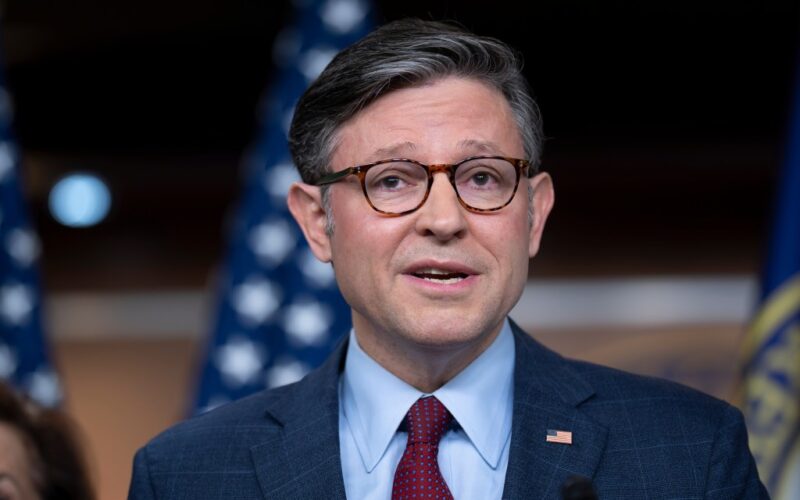House Speaker Mike Johnson is thwarting democratic government and violating the Constitution by refusing to swear in a new congresswoman from Arizona. Johnson must relent and give the oath of office to Adelita Grijalva.
More than a month ago, Grijalva, a Democrat, was elected by the voters of Arizona’s 7th district to go to Washington to replace her late father, Raúl Grijalva, in the House of Representatives. Those voters are still waiting, as in the interim Johnson has dodged calls to actually swear in and seat the congresswoman-elect among her new colleagues. This week, the state of Arizona was forced to sue Johnson in a bid to vindicate its electorate’s decision.
We would ask what exactly it is that Johnson is hoping to achieve here, but it’s not exactly a secret. Grijalva has already announced that she intends to sign an existing bipartisan discharge petition to compel the House to release all of the Jeffrey Epstein investigative files in its possession, which would put the signatures at 218 — exactly the number it needs in order to go directly to a full floor vote even over the speaker’s objections.
Now, far be it from us to definitively say why the speaker seems so eager to use procedural tools to keep materials related to the now deceased famous pedophile, the nation’s most notorious child sex trafficker, out of public view, but none of the options are particularly good.
We will simply acknowledge that Epstein by all accounts had an extensive social circle and clientele of some of the world‘s most rich and powerful people, including Donald Trump, who palled around with the guy and was close enough to him to sign a cryptic and unsettling poem for the financier’s birthday.
This refusal to allow the people of Arizona their elected representation is just the latest in a series of maneuvers that appear designed to keep these documents away from prying eyes. In August, Johnson and other GOP leaders decided to abruptly adjourn the session ahead of schedule and have commandeered the Rules Committee, quite the effort to control the release of this information.
This is not how it works. It is not the decision of the House speaker whether to allow new members to join the legislative body; that decision rests in the hands of the district’s voters alone. The swearing in is an opportunity for the members to take their oaths of office, but the speaker’s role in it is meant to be only ceremonial. The federal judiciary, which so far has been intervening frequently to tamp down on the executive branch’s abuses of power, might here have to step in and chastise the other branch.
We know that judges don’t tend to like getting involved in the internal affairs of Congress, but in this instance, it’s really a matter of if the voters made a decision that matters and must be honored, and the answer is unequivocally yes.
The question of whether House leadership can simply choose to exclude a duly elected member has already been asked and answered by the U.S. Supreme Court in the 1969 decision of Powell vs. McCormack — that being Harlem’s own Rep. Adam Clayton Powell Jr., whom then-Speaker John McCormack had refused to seat. In a 7-1 decision, the court said McCormack could not, as Powell otherwise fulfilled all the requirements to join the body. So has Grijalva, and it’s time she took her spot among her colleagues; what she signs then is her decision, not Johnson’s.








